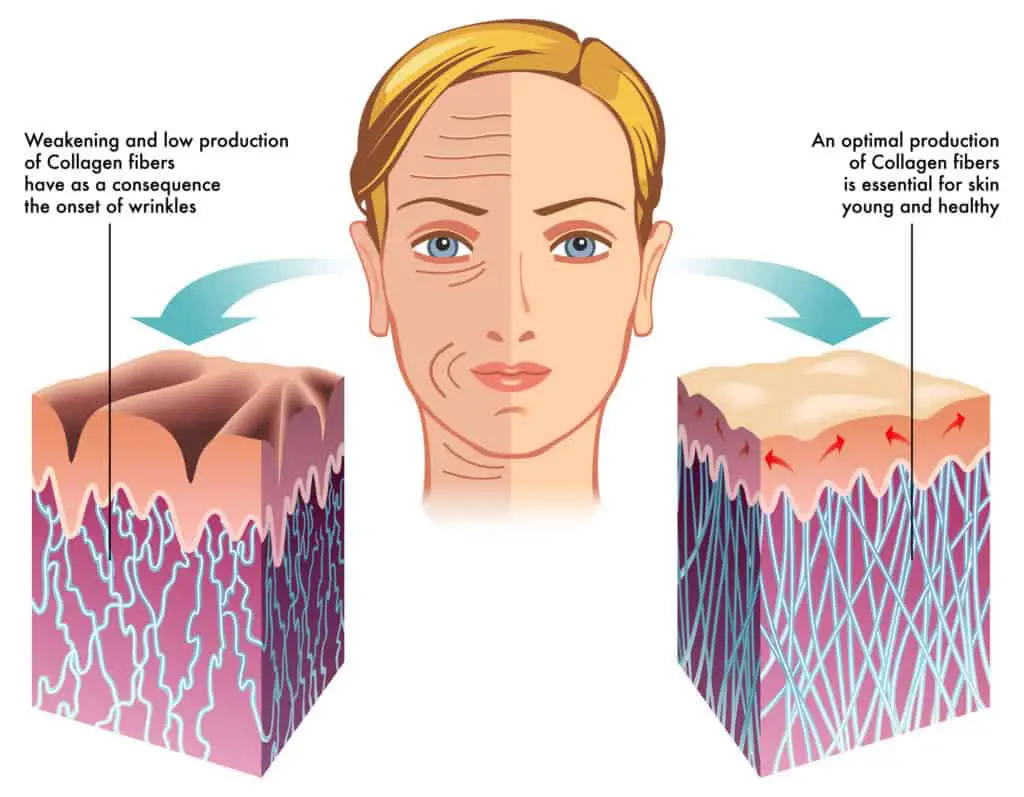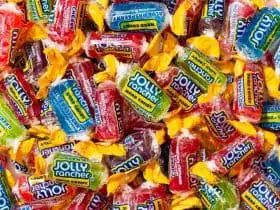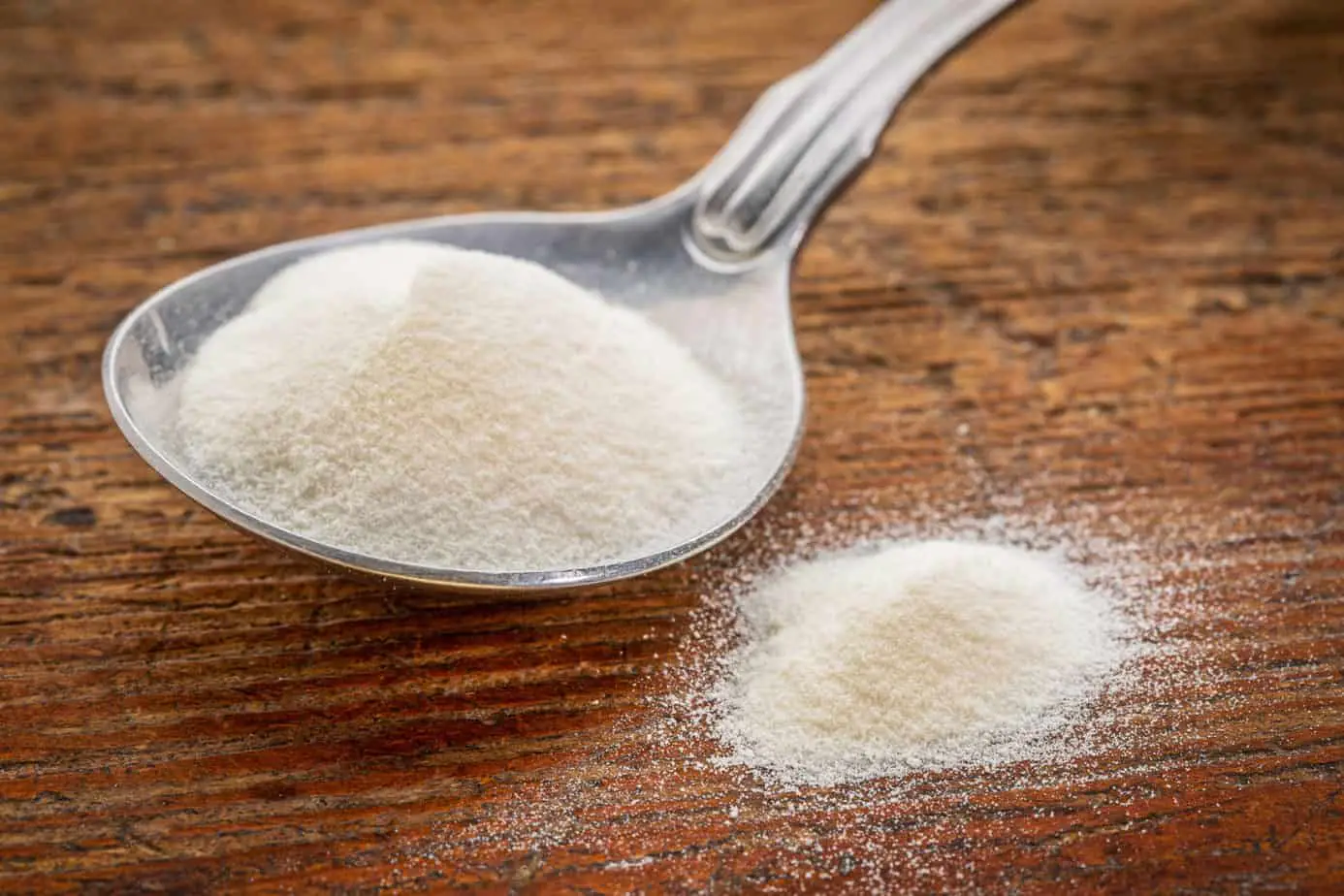We’ve all heard about collagen and how important it is in our daily lives. We are often told that it’s an essential component in our body’s structure, but we rarely understand what it means.
Nevertheless, this structural component is believed to be so essential that there are people who would take collagen supplements in case their bodies do not produce enough. After all, we are told that it makes us look younger than we are, and who doesn’t want that?
So, what exactly is this mysterious collagen that everyone in the skincare community seems to speak of? Is it safe for vegans to consume? These are just some of the questions that we will discuss in this article.
What is collagen?
Before anything else, we should first give you a brief discussion on what collagen is.
Collagen is a protein that plays an important role in our body’s tissues. It serves to provide our tissues with its structural integrity, which then allows the organ to function at its best. Basically, it holds our tissues and organs together, and as such, it is the most abundant type of protein in our bodies.
To provide you with a background of its etymology, the word stems from the Greek word “kola” and the French word “gene”. The former translates to “glue”, while the latter translates to “something that produces”. When we put them together, it roughly means “something that produces glue” – which we believe is the perfect representation of what this protein does to our body.
Seeing how essential collagen is to our bodies, it’s no surprise to discover that it makes up about 30% of our body’s protein content. There are five types of collagens, and you can find them from your head to your toes – from the cartilage in your ears, your muscles and tendons, the sclera of your eyes, and most abundantly, on your skin. Indeed, collagen plays an important function in our bodies.
How is collagen produced?

At this point, there’s no denying that collagen plays an important role in our day-to-day lives. now the question is: how is collagen produced?
All human beings naturally produce collagen when we consume protein that’s rich in the amino acids proline, glycine, and hydroxyproline. With the help of vitamins and minerals like Vitamin C, zinc, and copper, these proteins are then broken down into these key amino acids.
Then, these amino acids are responsible for building the different types of collagens that the specific tissue needs. Whether it’s on the skin or any other organ, there’s no denying that glycine, hydroxyproline, and proline are essential to our body’s natural collagen production.
Now the question is, what are the sources of these amino acid-rich proteins? We often get this type of protein from eating collagen-rich food like bovine, fish, chicken, and egg whites. Other sources of collagen-producing food include berries, certain vegetables, and citrus fruits. As long as these form part of our diets, we can count on our body’s natural processes to do the rest.
But as we age, this production process tends to slow down. And this is often reflected in the age spots, fine lines, wrinkles, and sagging all over our skin. That’s the reason why people turn to collagen supplements.
These supplements contain concentrated amounts of collagen or collagen peptides that help boost our body’s production of the essential amino acids. As a result, it helps keep our skin youthful, our hair strong, and our nails healthy and shiny. That, plus all the other benefits our organs and tissues derive from this essential structural protein.
Is collagen vegan?
Now, let’s proceed to the heart of this article: is collagen vegan?
From our discussion above, you now understand that collagen is produced by humans and similar mammals. It’s simply part of our nature to produce collagen, and it only slows down as we age. Thus, to put things simply, collagen cannot be considered vegan.
Previously, we mentioned that it is often derived from proteins rich in specific amino acids, and these are often found in animal meat and animal by-products. So if you’re vegan, this might not be the best news for you.
However, we have mentioned that collagen supplements are being used to boost our body’s natural collagen production. Fortunately, some of these supplements are plant-based, and that’s a reason for vegans to rejoice.
Before we proceed to discuss how vegan collagen came to be, let’s first discuss some of the components found in collagen supplements. This will give you an idea as to which ones to try and which ones to avoid.
Is hydrolyzed collagen vegan?
Let’s start with hydrolyzed collagen. Whenever we walk past collagen supplements, we often read “hydrolyzed collagen” or “collagen peptides” on the label. But, what exactly does it mean?
Hydrolyzed collagen is the broken-down version of collagen through a hydrolyzation process. This process helps break down the chemical bonds to create a protein chain containing the necessary amino acids. As a result, these protein chains are easier to process so our bodies can absorb them faster.
But, bear in mind that collagen is produced mainly by mammals and other species of animals. Thus, the usual source of collagen that is to be hydrolyzed is bovine hides and fish scales. That means that hydrolyzed collagen is not vegan.
Is marine collagen vegan?
Most collagen supplements are derived from cows and other bovine species. On the other hand, some manufacturers prefer producing marine collagen because of the high levels of elastin that come with it.
Collagen and elastin are essential proteins that help make the skin more elastic. It keeps it free from wrinkles and gives it a healthy glow and a supple feeling. That’s the reason why it’s so popular.
However, marine collagen is derived from fish scales. And being an animal derivative, that simply means that marine collagen is not vegan.
Is Vital Proteins collagen vegan?
When it comes to collagen supplements, the first name that comes to mind is Vital Proteins. With its extensive list of collagen products and supplements, it’s easy to see why it’s a top brand in the industry.
Unfortunately, the brand has made it clear that their collagen supplements are sourced from either bovine or marine animals. While they have plant-based food supplements in their inventory, none of them contain collagen.
Thus, Vital Proteins collagen supplements are not vegan.
Is there vegan collagen?
With everything that we have discussed above, it’s easy to see that collagen is mainly an animal byproduct. However, we are fortunate to live in a time where research and science work hand in hand to discover other potential sources of this protein.
Researchers reveal that while plants do not necessarily produce collagen, some of them are rich in proteins that contain essential amino acids. As a result, the vegan alternative contains ingredients that are expected to boost our body’s natural collagen production.
These vegan collagen supplements not only contain proteins that are rich in glycine, proline, and hydroxyproline, but should also be infused with the vitamins and minerals that aid the body in producing collagen.
Thus, while collagen, by itself, can only be derived from animal sources, we can still extract the same amino acids from plant-based sources. That’s how vegan collagen came to be.
Is vegan collagen effective?
But, there is much debate as to how effective vegan collagen can be.
Since it does not actually contain any collagen, some people are not convinced as to how it can improve our skin’s condition. Similarly, some people feel like there’s no real vegan collagen – just a vegan collagen booster that helps improve our body’s natural collagen production.
Fortunately, experts say that vegan collagen is, indeed, effective. Since it contains a protein chain that’s similar to those found in peptides, the body can absorb them faster, and that results in an effective boost of collagen production.
Thus, as long as you’re drinking the vegan collagen supplements regularly – and in the proper dosage – then there’s nothing for you to worry about. Vegan collagen is effective.












Leave a Reply